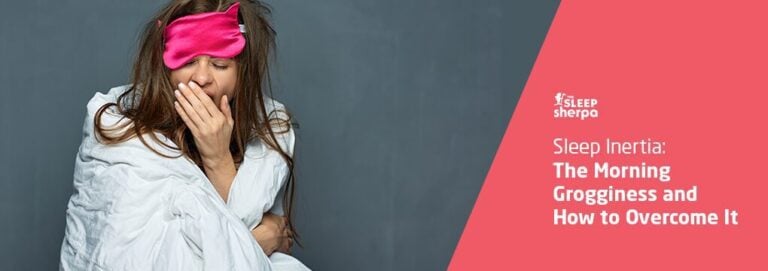Sleep Inertia: Understanding Morning Grogginess and How to Overcome It
We’ve all been there — the struggle to shake off that heavy fog as we peel ourselves from the comfort of our beds each morning. Eyes squinting, breath stale, and hair tousled, we often wish for just a few more minutes of blissful sleep. This uninvited sluggishness is commonly known as sleep inertia, a phenomenon that many experience upon waking.
Sleep inertia is that disorienting period immediately following awakening when our bodies feel heavy and our minds are slow to respond. But what exactly causes this grogginess, and how can we effectively combat it?
What is Sleep Inertia?
Sleep inertia refers to the transition phase between sleep and full alertness, during which certain parts of the brain are still in sleep mode. Surprisingly, this condition can sometimes leave you feeling more impaired than if you were intoxicated. Research suggests that the cognitive functions of the brain during this period can parallel that of a person with a blood alcohol content of 0.05%. This means that getting behind the wheel right after waking could be just as dangerous as driving under the influence.
The phenomenon occurs irrespective of sleep duration or quality. Even if you’ve enjoyed a long night of deep, restorative slumber, you may still experience those frustrating few moments of disorientation in the morning. Contrary to popular belief, the deeper you sleep, the longer you might struggle with sleep inertia.
Understanding Sleep Cycles
To better understand sleep inertia, let’s dive into the science of sleep stages. Sleep comprises four key stages: the first three are non-REM (Rapid Eye Movement) stages, followed by REM sleep, where dreaming occurs.
1. Stage 1: Light sleep where the brain is still somewhat active, making it easy to wake up.
2. Stage 2: A deeper level of sleep, but waking from this stage is generally free from grogginess.
3. Stage 3 and 4: These are the deep sleep stages when the brain is quite inactive. Awakening from these stages tends to result in profound sleep inertia.
When you wake while your brain is still transitioning out of these deeper sleep states, you may find yourself yawning and struggling to comprehend simple tasks like brushing your teeth. The root of this grogginess lies in different parts of the brain waking up at dissimilar rates.
The Mechanism Behind Sleep Inertia
The brainstem arousal system is activated as you wake, signaling your body to rise. However, the prefrontal cortex, responsible for decision-making and critical thinking, takes longer to kick in. Until this part of the brain is fully active, you’ll likely feel disoriented and tired, leading to that dreaded morning sluggishness.
One major player in this waking process is melatonin, a hormone that regulates sleep. As morning approaches, melatonin levels decrease, permitting some areas of the brain to awaken promptly while others lag behind.
Why Sleep Inertia Occurs
Sleep inertia can be exacerbated by two key factors: oversleeping and insufficient sleep. When realities of daily life push you into an irregular sleeping pattern, it compounds the effects of sleep inertia. Remain mindful that the longer you sleep, especially past your optimal sleep cycle, the more likely your sleep inertia will be pronounced.
Strategies to Overcome Sleep Inertia
While sleep inertia is a common experience, it doesn’t have to dictate your mornings. Here are several strategies to mitigate its effects and emerge from bed feeling refreshed and alert:
1. Prioritize Sufficient Sleep
One of the best ways to combat sleep inertia is to ensure you’re getting enough sleep. Establish a routine that allows for consistent, quality rest. Remember, the longer melatonin stays in your system, the more pronounced the sleep inertia becomes.
2. Be Mindful of Oversleeping
Ever notice that you feel groggier after lengthy sleep? This is often due to awakening mid-sleep cycle. To minimize the impact of sleep inertia, aim to wake up at the conclusion of a sleep cycle. Tools like sleep cycle apps can help in tracking and managing your sleep patterns.
3. Avoid Stimulants Before Bed
Caffeine and alcohol are major culprits that interfere with your sleep quality by blocking the neurotransmitters responsible for melatonin production. Steering clear of these substances close to bedtime can help you attain deeper sleep without the hangover-like effects in the morning.
4. Maintain a Sleep Routine
Fostering a consistent wind-down routine before bed can make a world of difference. Avoid screens, strenuous activities, and heavy meals in the hour leading up to sleep. This routine will help expeditiously ease you into deeper, more restorative states of sleep.
Conclusion
Sleep inertia may feel like a relentless challenge each morning, but understanding its mechanisms empowers us to tackle it head-on. By making conscious adjustments to our sleep habits and routines, we can minimize grogginess and awaken with clarity and energy. The next time you find yourself grappling with morning sluggishness, remember that simple yet effective strategies can lead you to a more refreshing start to the day. With these tools in hand, you’ll rise from your slumber feeling alert and ready to conquer the day ahead.

